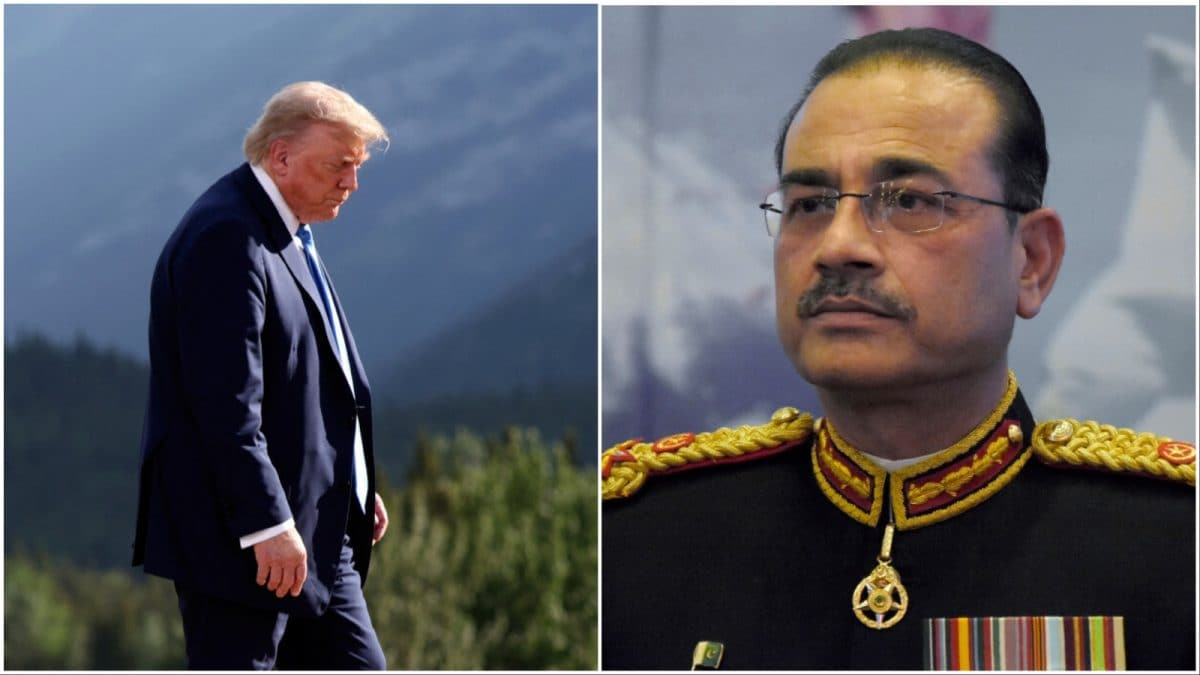ARTICLE AD BOX
Maharashtra amends school language policy amid controversy over Hindi. Raj Thackeray opposes the inclusion of Hindi, while Devendra Fadnavis defends the New Education Policy (NEP) rule. Marathi remains compulsory.

Devendra Fadnavis defends Maharashtra's revised third language policy.
Tensions have escalated in Maharashtra over the state’s third language policy in schools, with political leaders clashing over the inclusion of Hindi in the curriculum. The controversy erupted after the Maharashtra government issued a revised Government Resolution (GR) under its School Education and Sports Department, updating its earlier 2024 State Curriculum Framework that had made Hindi mandatory as the third language for students in Classes 1 to 5 in Marathi and English medium schools.
The revised GR now offers flexibility, allowing students to opt for any other Indian language in place of Hindi. However, this choice will be available only if at least 20 students in a class opt for the alternate language. In such cases, the school must arrange for a language teacher, or, in the absence of one, provide online instruction.
Marathi continues to remain compulsory in all schools. For non-Marathi and non-English medium institutions, the curriculum from Classes 1 to 5 will now include the medium of instruction, Marathi, and English. From Classes 6 to 10, the policy will align with the existing State Curriculum Framework.
Maharashtra Navnirman Sena (MNS) chief Raj Thackeray has taken a strong stand against the policy, particularly the inclusion of Hindi. He urged principals, parents, writers and editors to resist what he termed as an attack on Marathi culture. Thackeray pointed out that even Gujarat had not imposed Hindi in schools and questioned the need for such a step in Maharashtra.
Chief Minister Devendra Fadnavis defended the policy, stating that Raj Thackeray was not against the dual-language approach but opposed the mandatory third language clause. He clarified that the three-language formula is a directive under the Central government’s New Education Policy (NEP), which is binding on all states.
Fadnavis referred to Tamil Nadu’s failed legal challenge to the NEP and said the policy was based on expert studies in child development and learning. He argued that learning an additional Indian language should not be viewed as a threat, especially since Marathi remains a compulsory subject.
Talking to reporters, Fadnavis asked, "What is wrong with learning any other Indian language? If it is done by sidelining Marathi, we can understand (the opposition). If our children learn any other language while learning Marathi, they will gain knowledge of the other language as well.
Congress State President Harshavardhan Sapkal, meanwhile, accused the Mahayuti alliance of carrying out a BJP-driven agenda that aims to marginalise the Marathi language and identity. He alleged that Fadnavis, Eknath Shinde, and Ajit Pawar were promoting Delhi's interests at the expense of Maharashtra’s culture.
School Education Minister Dada Bhuse also issued a clarification, stating that Hindi is not mandatory and that Marathi will remain compulsory in all schools, warning of action against any institution that fails to comply.
While the controversy continues, Uddhav Balasaheb Thackeray’s Shiv Sena has largely stayed silent, a move that could allow Raj Thackeray and the MNS to strengthen their appeal as defenders of Marathi identity ahead of civic elections.
Published By:
Atul Mishra
Published On:
Jun 19, 2025



.png)
.png)
.png)
















 4 hours ago
5
4 hours ago
5










 English (US) ·
English (US) ·